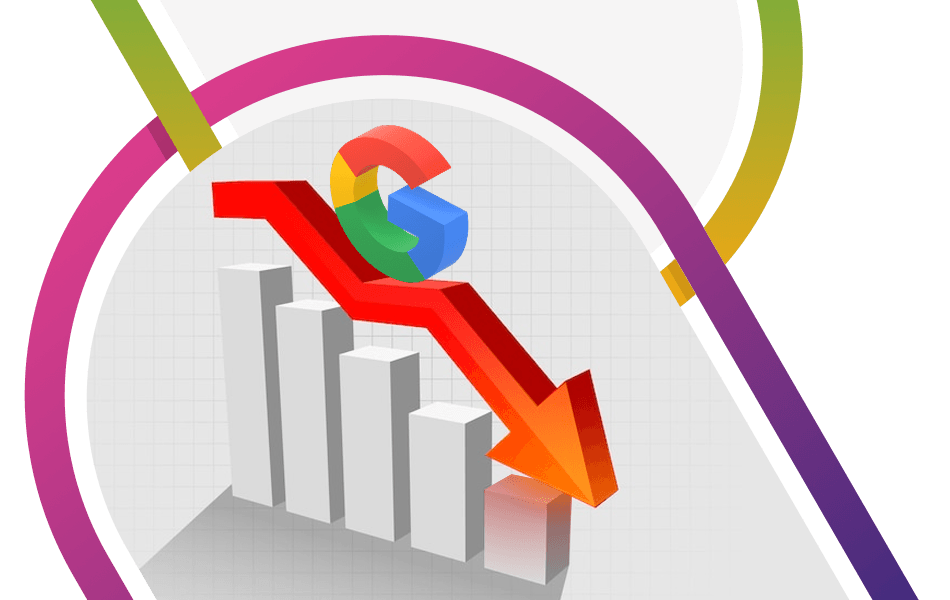
Free Digital Marketing Review
Elevate your online strategy with a personalised report and expert insights. Achieve your business goals faster!
Why is Google losing market share?
The latest data from StatCounter shows that for the first time since 2015 Google’s global search engine market share dropped below 90%/
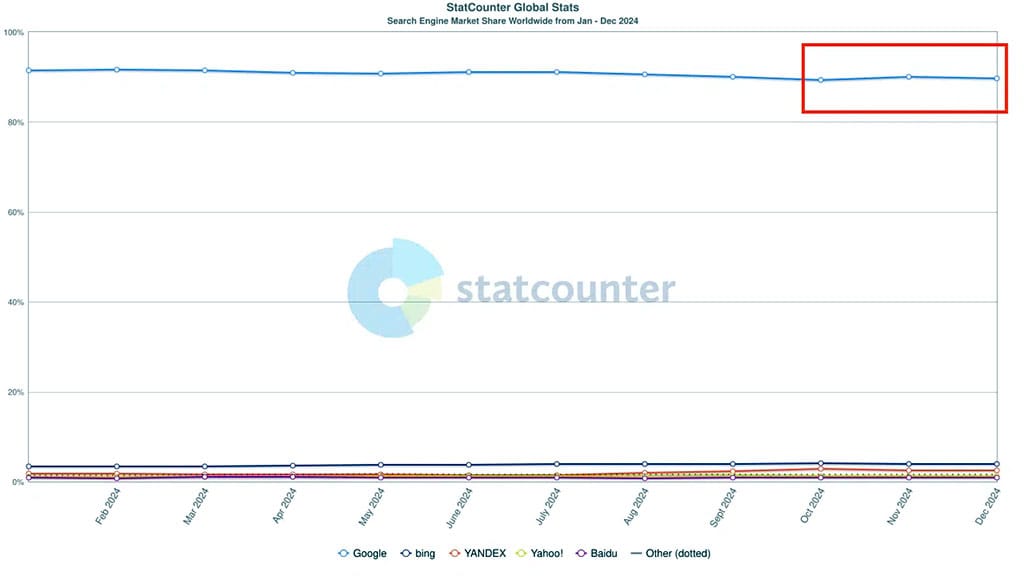
The question is why? Is it, as many have pointed out, that a younger audience is just not Googling anymore or is this just hearsay and personal opinion?
Investigating these changes further the drop is not just in the US or the UK but across a range of countries.
As an example, the following organisations have noted:
Statcounter – US market share peaked at 90.37% in November 2024 and fell by 3% in December 2025.
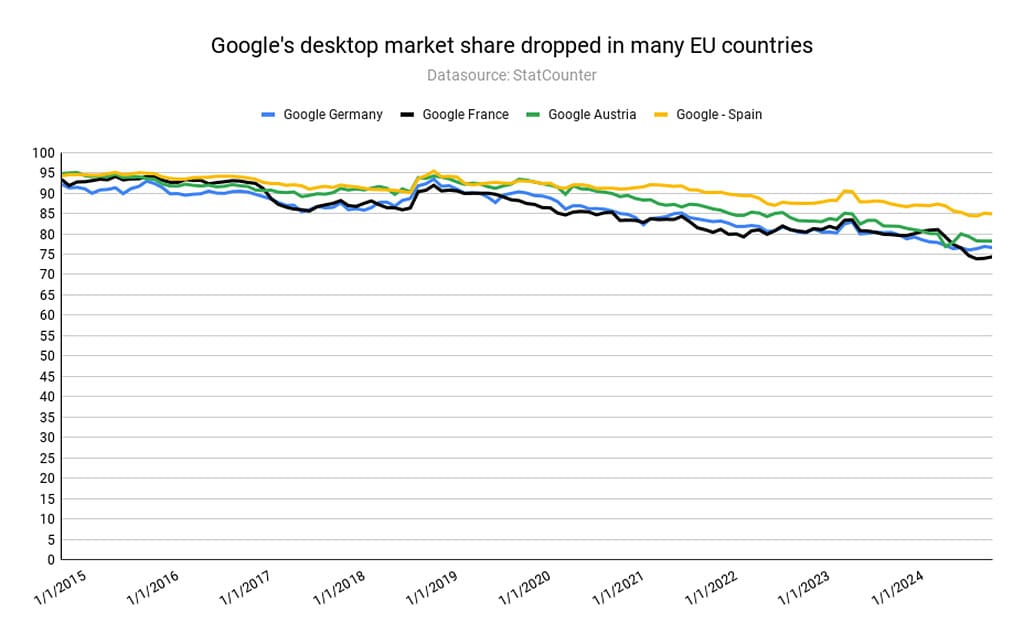
Digital Information World – In Europe, Google’s dominance has been gradually decreasing over the past decade, with notable reductions observed in France (5.6%), Germany (3.3%), and similar trends in Austria, Switzerland, Denmark, Poland, and the Netherlands.
U digital marketing – UK market share has dropped from 86% to 83%.
The desktop market share is also likely to have been impacted by the pre-installation of Edge as a browser on all machines running Windows.
Images: Growth Memo.
Why is Google losing market share?
It’s not just one thing that is causing the loss of market share.
The Impact of AI
AI has had a dramatic impact with ChatGPT and Perplexity offering alternative tools for informational research, most commonly part of Google’s stable. Data from Brightedge suggests that ChatGPT (44%) and Perplexity (71%) continue to grow month on month with ChatGPT expected to have a 1% search market share at some point in 2025.
Legal Proceedings
Google’s market dominance is being scrutinised in both the US, Canada and the UK. Calls are being made for Google to sell off Chrome, all to reduce Google’s market dominance.
The impact of Social Search
According to a 2024 survey by Adobe:
- Over 2 in 5 Americans use TikTok as a search engine.
- Nearly 1 in 10 Gen Zers are more likely to rely on TikTok than Google as a search engine.
- More than half of business owners (54%) use TikTok to promote their business, posting an average of 9 times per month.
- 1 in 4 small business owners use TikTok influencers for product sales or promotions
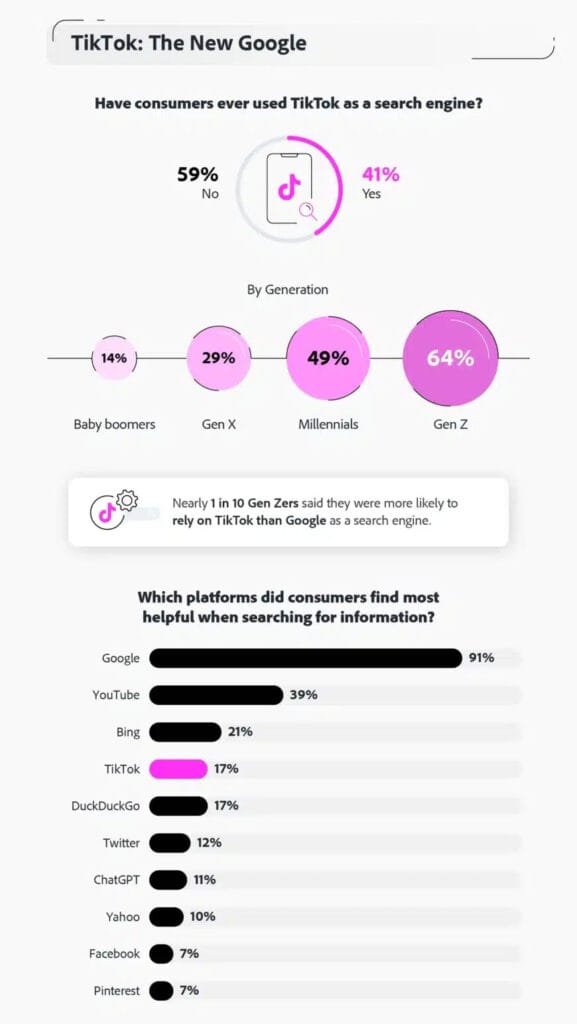
This shift in consumer behaviour is likely to increase the pressure on Google. The positions of Bing and DuckDuckGo, in addition to TikTok, in the top 5 results show that consumers are using a more diverse range of sources rather than just Googling it.
EU Regulatory Measures
As a result of the European Union’s implementation of the Digital Markets Act (DMA), users are now offered a “choice screen” when setting up their new mobile phones (see below).
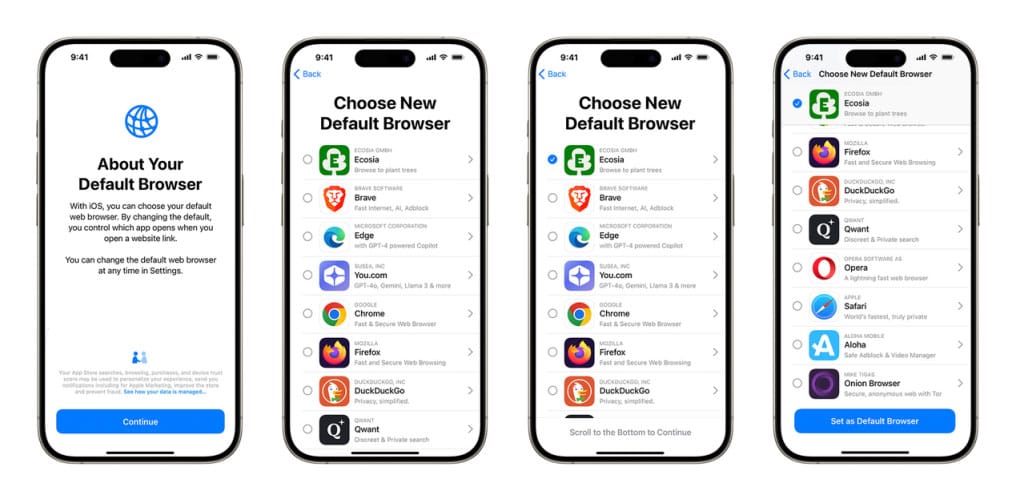
These choice screens have reduced the default usage of Google Search (Chrome) on mobile devices.
Google Content Quality
Over the last two years, in particular, SEOs and consumers alike have been complaining about the quality of Google’s search results.
This has been caused by AI-generated content, which can be repetitive and lacking in originality. SEO manipulation of search results, resulting in low-quality, unhelpful content that matches specific search queries.
Google is attempting to address this issue with significant updates to its core search algorithm, with mixed results.
Increased advertising has also led to consumers becoming frustrated with what they perceived as irrelevant results. The launch of the PMAX advertising platform has not helped with this issue.
Google is grappling with a complex issue of declining search result quality, largely influenced by evolving SEO practices and the increasing prominence of AI-generated content. Google is responding with algorithmic updates and seeking user feedback to improve the search experience.
Google AI Overview
With the launch of ChatGPT by OpenAI in November 2022, Google faced an unprecedented attack on its stable revenue generator search. Such was the impact of this that in February 2023, the founders of Google (they stepped back in 2019) returned at the invitation of the CEO, Sundar Pichai, to look at how this could be counteracted, at the time the Wall Street Journal described this action as a “code red”. This led to a massive investment in AI, and with this, Gemini, as it’s now known, was born. Later came Google AI overviews. Leading to the all-familiar Google AI results for most informational searches and a massive rise in no-click searches.
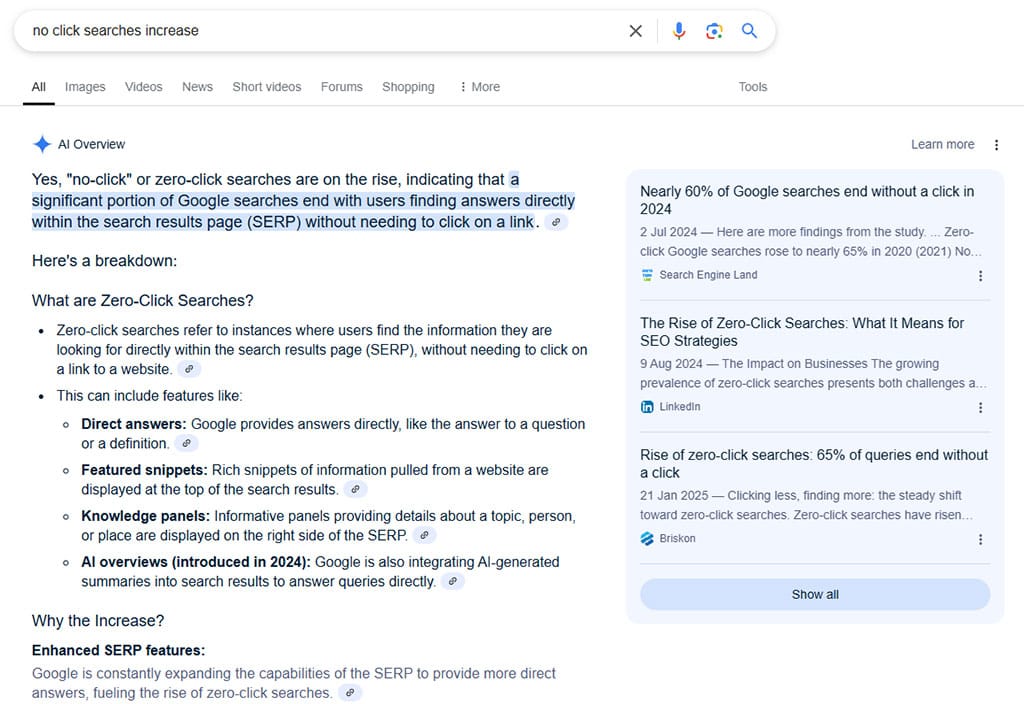
What’s next for Google?
From a personal perspective, it appears that Google is at a crossroads, facing increasing competition. Who, for instance, would gain the most from the removal of TikTok from the US market?
As Meta saw with Facebook, it’s not cool to be seen in the same space as your parents. Meta’s answer was to purchase Instagram and WhatsApp to diversify.
Google has consistently struggled to diversify its revenue sources, and as of 2024, ad revenue still accounts for 77.8% of its turnover. This was compounded by ad revenue growth being half of that of Meta, which is continuing to eat into the overall ad revenue share. In Q4 (2024), Google’s revenue missed expectations for the first time in two years.
The future for Google lies in AI. The question is, what does this look like? It’s rumoured that Google will invest $75 billion in AI and Cloud during 2025. This follows a $120 billion investment in 2024.

Need help with your website and marketing?
Book a FREE growth strategy session with our experts
Our award-winning team will review your website and marketing goals to provide you with crucial insight and advice.

4.9 STAR
Google reviews
With 10+ years of experience, Link Digital has helped hundreds of businesses to succeed online. We can help yours too!
